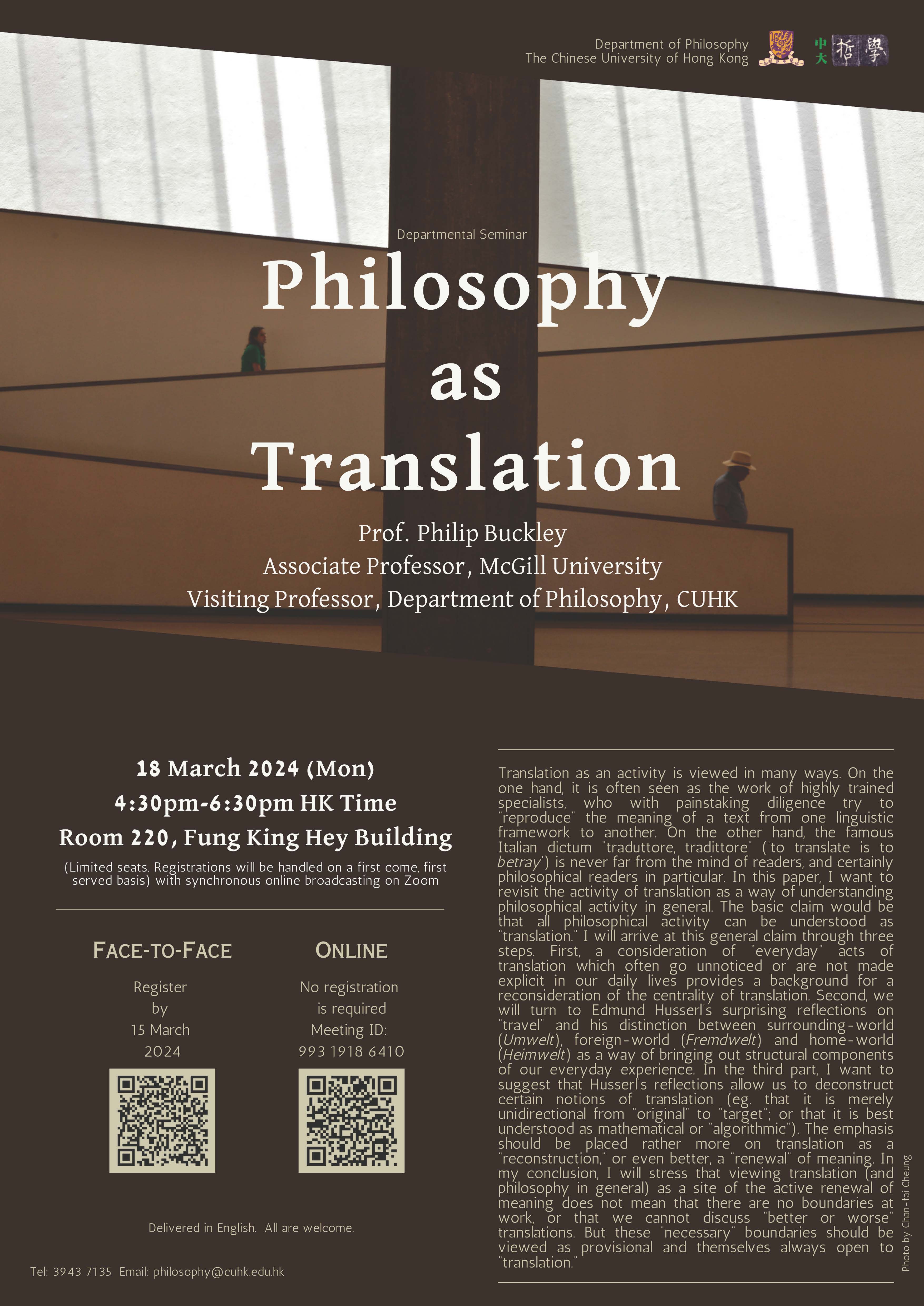Philosophy as Translation (Departmental Seminar)

Prof. Philip Buckley |
|
4:30pm-6:30pm HK Time |
|
Room 220, Fung King Hey Building with synchronous online broadcasting on Zoom |
Joining the Seminar face-to-face:
Limited seats for face-to-face seminar. Registrations will be handled on a first come, first served basis.
Register by 15 March 2024: https://cloud.itsc.cuhk.edu.hk/webform/view.php?id=13685004
Joining the Seminar online:
No registration is required.
Link: https://cuhk.zoom.us/j/99319186410
Meeting ID: 993 1918 6410
Enquiries:
Tel: 3943 7135
Email: philosophy@cuhk.edu.hk
Abstract:
Translation as an activity is viewed in many ways. On the one hand, it is often seen as the work of highly trained specialists, who with painstaking diligence try to “reproduce” the meaning of a text from one linguistic framework to another. On the other hand, the famous Italian dictum “traduttore, tradittore” (‘to translate is to betray‘) is never far from the mind of readers, and certainly philosophical readers in particular. In this paper, I want to revisit the activity of translation as a way of understanding philosophical activity in general. The basic claim would be that all philosophical activity can be understood as “translation.” I will arrive at this general claim through three steps. First, a consideration of “everyday” acts of translation which often go unnoticed or are not made explicit in our daily lives provides a background for a reconsideration of the centrality of translation. Second, we will turn to Edmund Husserl’s surprising reflections on “travel” and his distinction between surrounding-world (Umwelt), foreign-world (Fremdwelt) and home-world (Heimwelt) as a way of bringing out structural components of our everyday experience. In the third part, I want to suggest that Husserl’s reflections allow us to deconstruct certain notions of translation (eg. that it is merely unidirectional from “original” to “target”; or that it is best understood as mathematical or “algorithmic”). The emphasis should be placed rather more on translation as a “reconstruction,” or even better, a “renewal” of meaning. In my conclusion, I will stress that viewing translation (and philosophy in general) as a site of the active renewal of meaning does not mean that there are no boundaries at work, or that we cannot discuss “better or worse” translations. But these “necessary” boundaries should be viewed as provisional and themselves always open to “translation.”
Delivered in English.
All are welcome.




